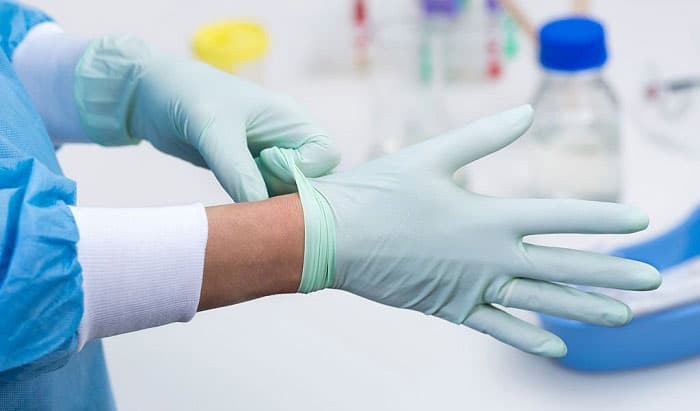Both the Centers for Disease Control and Prevention (CDC) and the Occupational Safety and Health Administration (OSHA) provide guidelines on the use of different gloves for dental care professionals. We all know that healthcare workers wear surgical gloves in sterile environments. Meanwhile, exam gloves are worn when examining a patient’s mouth.
So, when should utility gloves be worn? Contrary to its name, this piece of protective equipment is ironically and surprisingly underutilized. Find out what it is and the different tasks it is meant for in this article.
Table of Contents
What Are Utility Gloves?
According to the RDH Magazine, utility gloves are heavy-duty protective equipment resistant to chemicals and punctures. Due to their autoclavable nature, they can be sterilized several times, which makes them reusable.
That said, it is recommended that each employee have their own gloves for hygienic purposes. Furthermore, the gloves should undergo autoclaving or proper cleaning at least once a week.
If you want to learn more about the different gloves that dentists wear, check out this video by Online Exodontia.
Instances Where Utility Gloves Prove Useful
1. Disinfecting and cleaning rooms and surfaces
Pandemic or not, dental offices need to be kept clean at all times. Whether you have an assistant for the task or are doing it yourself, CDC and OSHA regulations encourage the sterilization of utility gloves used for housekeeping tasks.
Furthermore, the Dimensions of Dental Hygiene points out that using utility gloves for sterilization protects workers when cleaning and disinfecting contaminated instruments.
2. Handling hazardous chemicals and materials
Thanks to the nitrile material, the utility gloves dental professionals use can also shield their hands and skin from harmful substances.
Moreover, since they are puncture-proof, the utility can prevent you from getting pricked by the pointy edges of instruments. As such, you can pack or move your supplies safely.
3. Performing detail procedures
Utility gloves are used in a dental procedure because they are more chemical- and puncture-resistant than typical surgical or exam gloves. However, this is not exactly the norm among oral care professionals. Since they are thicker and bulkier, utility gloves can affect dentists’ dexterity. Some gloves do not even fit workers’ hands well.
Conclusion
As a recap for this article about when should utility gloves be worn, let me reiterate: wearing this protective equipment is necessary for you to work safely, especially in dental procedures. Besides protecting you from possible contamination, it shields your hands against punctures and chemicals. Always remember to:
- Provide each worker in your team with a pair of utility gloves
- Read and understand the manufacturer’s instructions on how to clean the gloves
- Ensure that the utility gloves fit each worker’s hands nicely

Veronica is our content editor. She is a talent in delivery. Her main work is editing and writing articles that are both informative and simple to follow. She is in charge of synthesizing our understanding of what personal protection equipment (PPE) is needed in each job, how to best apply it, and how to visualize that equipment.



